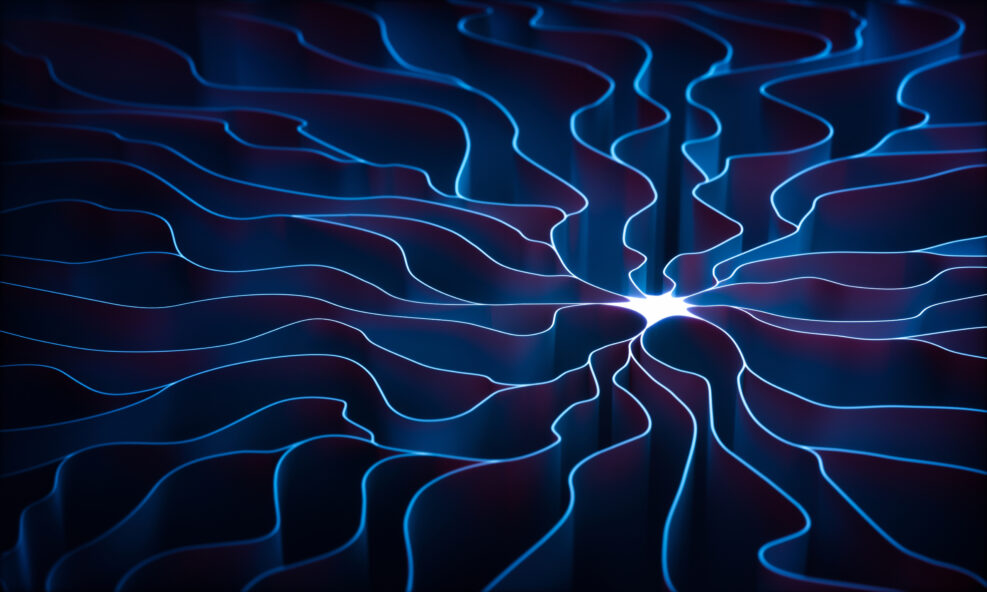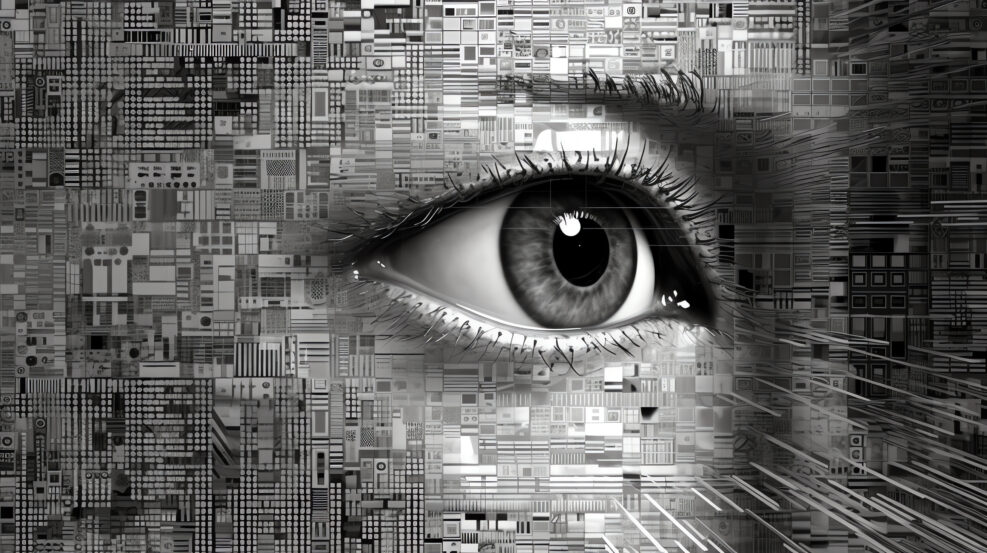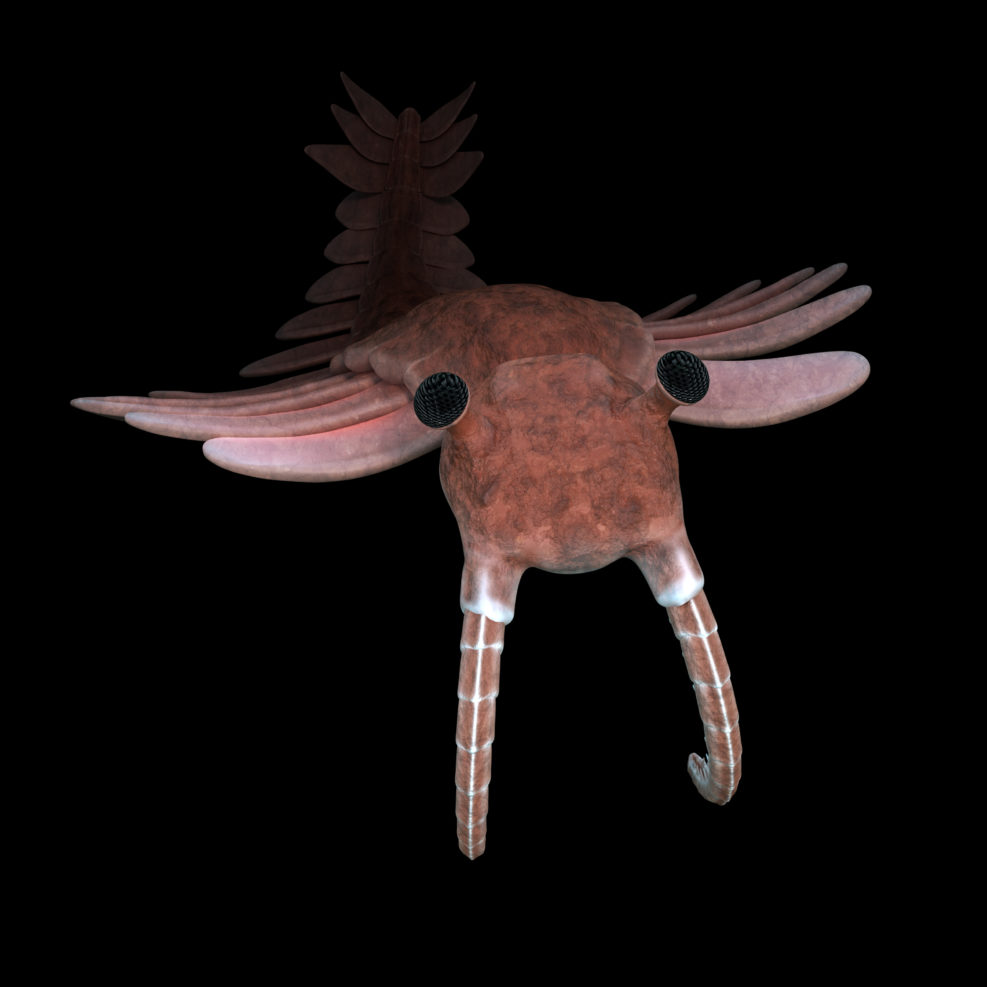
TagChristof Koch


Philosopher: Non-Materialism Is Fashionable Orthodoxy Now
Non-reductionism, which means that the mind is not simply reducible to the brain, is now well accepted, she argues
Consciousness Wars Still Simmer, Despite Peacekeeping Efforts

Attack on Top Consciousness Theory Springs From Abortion Politics
If that sounds surprising and unscientific, read on. Pro and con, they make it clear
Leading Consciousness Theory Slammed as “Pseudoscience.” Huh?
Integrated Information Theory’s panpsychist leanings are the 124 neuroscientist critics’ real target
Neuroscientist vows post-wager: We’ll nail consciousness yet!
Anil Seth, proponent of the “hallucination” theory of consciousness, vows that researchers will find that consciousness spot or circuit in the brain
It’s Becoming Clearer That the Mind Is Not the Brain
The “science of consciousness” not only has no workable materialist theory but it’s unclear what such a theory should look like or explainNot surprisingly, given that philosopher David Chalmers won the famous wager with neuroscientist Christof Koch last month, the topic of consciousness has been in the news a lot. In 25 years of research, no one has found a specific consciousness circuit, spot, wave, or whatever in the brain. Consciousness is still the “Hard Problem of Consciousness.” At Vox, Oshan Jarow, a writer who knows the field, tells us that the bet has been renewed for another 25 years and offers an interpretation of why scientists haven’t “cracked” consciousness so far: “we still lack a definitive, falsifiable explanation. We even lack consensus on whether one may ever exist.” Eventually, in this view, the field might coalesce around a unified theory and Read More ›

The Philosopher Wins: There’s No Consciousness Spot in the Brain
After a 25-year search, dualist philosopher David Chalmers won the bet with neuroscientist Christof KochBack in 1998, premier neuroscientist Christof Koch had wagered philosopher of mind David Chalmers a case of fine wine that within the next twenty-five years, a specific “signature of consciousness” would be found in the brain. In 2018, Swedish journalist Per Snaprud reminded the world of that fact at New Scientist. With five years to run, a countdown of sorts began. Snaprud’s article was titled “Consciousness: How we’re solving a mystery bigger than our minds,” telling readers that “we’re uncovering clues.” The five years are up and who won? Mariana Lenharo reports at Nature, “Both scientists agreed publicly on 23 June, at the annual meeting of the Association for the Scientific Study of Consciousness (ASSC) in New York City, that Read More ›

Can Panpsychism Save Naturalism From Itself?
Panpsychism can be seen as an effort to save naturalism by acknowledging the reality of the mind while insisting that the mind is wholly naturalThis article is an excerpt of one that originally appeared in Salvo 61 (Summer 2022), under the title “Everything is Conscious? Panpsychism goes mainstream.” Panpsychism — the view that all of the universe participates in consciousness, which is most fully developed in humans — has been gaining popularity in science in recent years. Does that sound unbelievable? Is not science committed wholly to materialism and nothing but materialism? Will consciousness not soon be “explained” by an accidental glitch in brain wiring that natural selection retained? Science doesn’t seem nearly as committed to that view just now. A 2018 article at Quartz by Olivia Goldhill was titled “The idea that everything from spoons to stones is conscious is gaining academic credibility.” Read More ›

Did Minimal Consciousness Drive the Cambrian Explosion?
Eva Jablonka’s team makes the daring case, repurposing Hungarian chemist Tibor Gánti’s origin of life studiesEva Jablonka is “one of the world’s foremost experts in epigenetic inheritance and evolution” but she has also had a longstanding interest in consciousness studies. She was author, with Marion J. Lamb, of Evolution in Four Dimensions: Genetic, Epigenetic, Behavioral, and Symbolic Variation in the History of Life (MIT Press 2006/rev. 2014). She and neurobiologist Simona Ginsburg, along with illustrator Anna Zeligowski, offer a new approach to the origin of consciousness in an essay at IAI.TV — one with an interesting departure from many approaches to consciousness: Taking their inspiration from Hungarian chemist Tibor Gánti (1933–2009), who posited a chemoton — the minimal life form or protocell — as the origin of life, they first attempt to define minimal consciousness, Read More ›

Do Any Dogs Go To Heaven? If So, Why?
Neuroscientist Christof Koch was troubled as a child by the Catholic tradition that dogs like his beloved Purzel did not go to heavenIn recent articles, we’ve discussed well-known neuroscientist Christof Koch’s Integrated Information Theory (IIT) of consciousness which, as he acknowledges, takes a panpsychist (everything is conscious to some degree) approach to the mind. He has explained his reasoning at MIT Press Reader: Materialists must see human consciousness as an illusion — but then whose illusion is it? Panpsychism allows humans to have actual consciousness but, he says, “experience may not even be restricted to biological entities but might extend to non-evolved physical systems previously assumed to be mindless — a pleasing and parsimonious conclusion about the makeup of the universe.” His perspective is gaining popularity in science. One, perhaps unexpected, factor that he mentions as shaping his overall approach was youthful Read More ›

Panpsychism Is, in Angus Menuge’s View, a Desperate Move
But he thinks it is worth keeping an eye on as an understandable reaction to materialismIn Walter Bradley Center director Robert J. Marks’s second podcast with philosopher Angus Menuge, the big topic is the perennial “Hard Problem of consciousness and various proposed solutions. Last time, they talked about the surprisingly large philosophical problem created by a concept like “red.” This time, they talk about whether Integrated Information Theory (IIT) and panpsychism in general are a way out of the dead end of naturalism. That is, if our science hypothesis is that consciousness is just an illusion, then we don’t — and can’t — have a hypothesis. There must be a better solution than that: https://episodes.castos.com/mindmatters/Mind-Matters-134-Angus-Menuge.mp3 This portion begins at 10:35 min. A partial transcript, Show Notes, and Additional Resources follow. Robert J. Marks: Okay. Let’s Read More ›

Quick Facts on IIT (the Leading Theory of Consciousness)
IIT may be part of a trend in science in which emergence and panpsychist theories are slowly replacing materialist and physicalist onesConsciousness, as a concept, is so easy to experience and so hard to define. Or explain. The most popular current theory of consciousness is Integrated Information Theory (IIT), pioneered by neuroscientist Giulio Tononi and championed by Allen Institute neuroscientist Christof Koch. For the purpose of discussing IIT, science writer Mike Hogan works with this definition: Consciousness for purposes of this theory is defined as ‘self-awareness’ or the Central-Identity; the inner-voice that allows your brain to talk to itself, an awareness that ‘you’ exist, the rationalization of your own relevance to that existence, and an awareness of the cause and effect of your actions in regard to yourself and your environment. Mike Hogan, “The Best Available Story of Human Consciousness” at Read More ›

Dr. Angus Menuge: Models of Consciousness (Part II)
What is it like to see a red rose? To smell a red rose? To feel pain? In this week’s podcast, Dr. Robert J. Marks and Dr. Angus Menuge continue their discussion on philosophies of the mind, delving into competing definitions of consciousness. Show Notes Additional Resources

Why Would a Neuroscientist Choose Panpsychism Over Materialism?
It seems to have come down to a choice between “nothing is conscious” and “everything is conscious”A really significant change in brain science in recent years has been the gradual acceptance in mainstream science venues of sympathy for panpsychism — the position that everything is conscious to some degree. Leading neuroscientist Christof Koch, for example, explained last month in MIT Reader: But who else, besides myself, has experiences? Because you are so similar to me, I abduce that you do. The same logic applies to other people. Apart from the occasional solitary solipsist this is uncontroversial. But how widespread is consciousness in the cosmos at large? How far consciousness extends its dominion within the tree of life becomes more difficult to abduce as species become more alien to us. One line of argument takes the principles Read More ›

The Chaitin Interview IV: Knowability and Unknowability
What does it mean for something to be unknowable? Is creativity non-computable? Do all things have a level of consciousness? Jump into today’s podcast, where Robert J. Marks continues his discussion with Gregory Chaitin about mathematical theory and philosophy. Show Notes Additional Resources (Portions of this transcript have been altered to clarify the content).

Physician Explains Why He Takes Near-Death Experiences Seriously
Near-death experiences don’t fit easily into traditional science categories because they occur — often with life-changing effects — when the brain is damaged or unconsciousHealth and science writer Markham Heid recounts a story from psychiatrist Bruce Greyson’s book After (2021) that typifies the near-death experiences (NDEs) that have excited research interest: The truck driver’s story sounded far-fetched. The man claimed that in the middle of his quadruple bypass heart surgery — during which he was fully anesthetized and his eyes were taped shut — he had “come to” and found that he was looking down at his own body and the doctors preparing to operate on it. He described the scene in detail, and he recalled that his surgeon had waved his elbows in the air as if he were mimicking a bird flapping its wings. Later, when asked about his patient’s peculiar account, Read More ›

Everyone Seems To Be Looking For the “Seat of Consciousness”
Does consciousness have a seat at the table? Wait a minute. Isn’t consciousness the TABLE?Prominent neuroscientist Christof Koch, whose theory of consciousness is linked to panpsychism, has a new paper at Nature: Human Behaviour. Ideally, many science notables would like to “naturalize” human consciousness—to make it the same sort of phenomenon as the wind in the trees in a universe where nothing has any intrinsic meaning that sets it apart from anything else or points to a higher order of things. That would, of course, make calculation easier. But is it true? Here’s the abstract: Electrical stimulation of the human cortex, undertaken for brain surgery, triggers percepts and feelings. A new study documents an ordering principle to these effects: the farther removed from sensory input or motor output structures, the less likely it is Read More ›

At Nautilus: Electrons DO have a “rudimentary mind”
Panpsychists in science believe that nature is all there is but, they say, it includes consciousness as a fundamental fact of natureA leading theory of consciousness, Integrated Information Theory (IIT) proposed by University of Wisconsin neuroscientist Giulio Tononi and championed by by another leading neuroscientist, Christof Koch, has clear panpsychist affiliations. It is favored by proponents of the idea that electrons are conscious. Whoa!, you say. How can electrons be conscious? Wouldn’t they at least need a brain to be conscious? Let’s hear an explanation from proponent Tam Hunt (right) at Nautilus: You might see the rise of panpsychism as part of a Copernican trend—the idea that we’re not special. The Earth is not the center of the universe. Humans are not a treasured creation, or even the pinnacle of evolution. So why should we think that creatures with brains, like Read More ›

Newfound Respect in Science Literature for Near-Death Experiences
For example, when people claim that they could see colors not normally available to humans, there is at least a possible science basis for that.One really interesting change in science literature on near death experiences in recent years has been growing respect, possibly due to more information about them. For example, when people claim that they could see colors not normally available to humans, there is at least a possible science basis for that. In a recent edition of Scientific American neuroscientist Christof Koch, chief scientist of the Allen Institute for Brain Science, founded by a Microsoft billionaire, doesn’t discount them. He would like to find a fully naturalist explanation but that is quite different from past efforts to explain them as mere hallucinations, which failed to take into account their life-changing effects. He has said about them, I accept the reality of these Read More ›